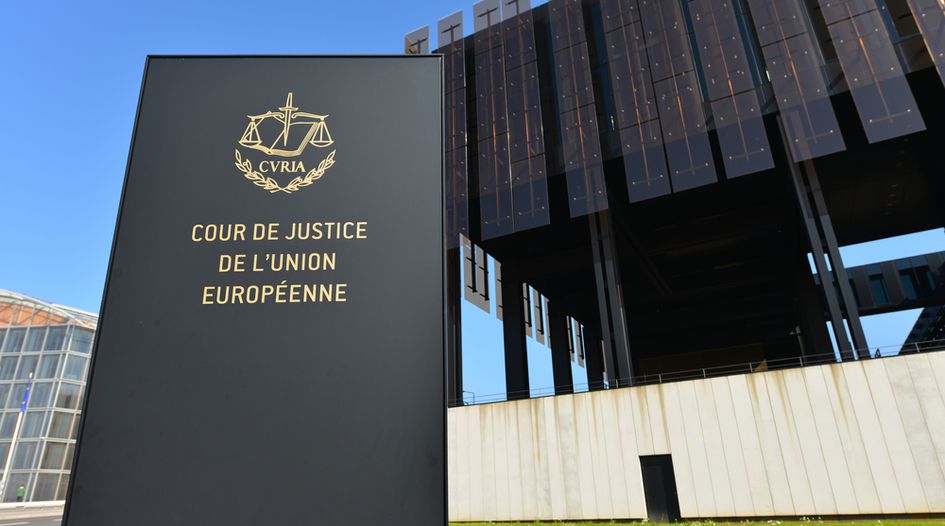ECJ upholds landmark EU Google Shopping decision

The European Court of Justice has put an end to Google’s fight against a landmark €2.4 billion penalty for abusing its dominance to favour its comparison shopping service.
The EU’s apex court today upheld the European Commission’s conclusion that Google anticompetitively self-preferenced its own specialised results in Search whilst demoting rivals’ through an algorithm.
The highly-anticipated ruling marks the end of the flagship tech case under outgoing Competition Commissioner Margrethe Vestager and provides further clarity on enforcement of Article 102 Treaty on the Functioning of the European Union. It also bolsters the agency’s approach under the EU Digital Markets Act, which also includes provisions against self-preferencing.
Vestager today hailed the case as “symbolic” in demonstrating that even the largest technology companies can be held accountable.
Google Shopping was a “catalyst for change”, she told a press conference in Brussels. It set a precedent and paved the way for further regulatory action, including the DMA, she added.
Vestager said that the message from today’s judgment is that the agency will “continue to push – so that when we find abuses of a dominant position, we will go after it.”
The Google Shopping case is important because it demonstrates that “we will keep doing specific competition cases while at the same time enforcing the DMA,” Vestager said. “The two need to complement one another.”
Rival comparison shopping services – including those that have launched follow-ondamages claims based on the Google Shopping decision – heralded today’s judgment but emphasised the role of the DMA in addressing self-preferencing going forwards.
Rich Stables, chief executive of the Kelkoo Group, urged the agency to “take this win into the room when it is implementing the DMA”, adding that the regulation is “a nimble and fast-acting regulatory tool that can help the commission achieve its objective of a level playing field in digital markets.”
Honey Deihimi, senior vice president corporate affairs at price comparison company idealo, echoed his sentiments, claiming in a statement that Google continues to self-preference in shopping and many other services.
“The fact that this decision follows a decades-long struggle underscores the importance of clear market rules,” she said. “The DMA will protect the interests of consumers and competitors more quickly and efficiently than decades-long legal disputes.”
A Google spokesperson said the company is “disappointed” with the ruling and added that it “relates to a very specific set of facts.”
They added that the company made changes in 2017 to comply with the agency’s decision.
ECJ ruling
Today’s ruling stems from the agency’s decision against Google in 2017, which concluded that the company’s search practices allowed it to “leverage” its dominance in the comparison shopping market. In November 2021, the EU’s General Court upheld the enforcer’s analysis of the anticompetitive effects of Google’s practices.
Google’s appeal was partly based on the argument that the case concerns refusal-to-supply rather than self-preferencing, meaning that the Bronner criteria must be applied. As the cumulative criteria were not present in this case, Google claimed that there was no abuse.
Advocate general Juliane Kokott dismissed Google’s argument on this point as “untenable” in her opinion in January 2024.
The ECJ today backed AG Kokott, saying that since Google allowed rival comparison shopping services access to its general search service and results pages at discriminatory conditions, the Bronner criteria do not apply.
The commission was also not required to apply the “as-efficient-competitor” test, the ECJ said, again siding with AG Kokott.
Google had claimed that where the commission’s case rested on foreclosure of actual competitors, the agency was required to examine whether this was due to Google’s conduct or due to other factors such as a lower quality of service – which it had failed to address.
But the ECJ said that the test is not mandatory for demonstrating an infringement of Article 102, and was also not relevant to the Google Shopping case.
Google had also argued that the General Court “reversed the burden of proof” by upholding the enforcer’s decision, despite it not containing a counterfactual analysis to determine a causal link between the practices and its effects.
But the ECJ said that the lower court “neither reversed the burden of proof borne by the Commission”, nor “ruled out the usefulness of a counterfactual analysis.”
Instead, it correctly concluded that the agency is entitled to “rely on a range of evidence, without being required systematically to use any single tool to prove the existence of such a causal link,” the ECJ said.
“A resounding win”
Dieter Paemen, a partner at Clifford Chance in Brussels, said the ruling is a “resounding win for the commission and provides helpful clarifications on the application of Article 102.”
He noted that the ruling is “generally a positive” for both authorities and complainants, “because it does not impose a set of criteria that is overly exacting and unrealistic.”
Paemen added that the judgment’s clarification of abuse of dominance law enforcement will “have implications well beyond the particular set of facts around comparison shopping.”
Daniel Friedlaender, senior vice president and head of CCIA Europe – which intervened on behalf of Google and counts the tech giant among its members – said in a statement that the group “got involved in this case because of the significant repercussions it could have on the wider tech industry, not just big firms.”
He therefore welcomed the court’s clarification that self-preferencing is not “inherently problematic,” pointing to the ruling’s statement that a dominant firm favouring its own products or services over rivals’ cannot be considered “as a general rule” to be “departing from competition on the merits irrespective of the circumstances of the case.”
Counsel to Google
Cleary Gottlieb Steen & Hamilton
Partners Thomas Graf and Robbert Snelders in Brussels
Hogan Lovells
Partner Christopher Thomas in Brussels, assisted by Alexandra Bray
Monckton Chambers
Meredith Pickford KC and David Gregory
Counsel to the European Commission
European Commission Legal Service
Fernando Castillo de la Torre, Nicholas Khan KC, Anthony Dawes, Henning Leupold and Carlos Urraca Caviedes
Counsel to the Computer & Communications Industry Association (intervenor on behalf of Google)
White & Case
Partners James Killick and Asimakis Komninos in Brussels
Garrigues
Partner Alfonso Lamadrid de Pablo in Brussels
Counsel to Infederation (intervenor on behalf of European Commission)
Hausfeld
Partner Lesley Hannah in London, assisted by Stella Gartagani and Kio Gwilliam
Clifford Chance
Partner Thomas Vinje in Brussels assisted by Axelle D’heygere
Monckton Chambers
Anneli Howard KC
Counsel to the European Consumer Bureau (BEUC) (intervenor on behalf of European Commission)
FratiniVergano
Partner Alessandra Fratini in Brussels
Counsel to Visual Meta and the Association of German Magazine Publishers (intervenor on behalf of European Commission)
Hausfeld
Partner Thomas Höppner in Berlin assisted by Philipp Westerhoff
Counsel to Twenga (intervenor on behalf of European Commission)
Gide Loyrette Nouel
Partners Laurent Godfroid in Paris and Stéphane Hautbourg in Brussels, assisted by Mélanie Gouraud
Counsel to Kelkoo (intervenor on behalf of European Commission)
Linklaters
Partners Bernd Meyring and William Leslie in Brussels
Counsel to Pricerunner International (intervenor on behalf of European Commission)
Norburg & Scherp
Partners Helena Selander, Fredrik Norburg, Kristina Ljungström and Pontus Scherp in Stockholm
Counsel to EFTA Surveillance Authority (intervenor on behalf of European Commission)
Claire Simpon, Michael Sanchez Rydelski, Ingibjörg Ólöf Vilhjálmsdóttir and Melpo-Menie Joséphidès
Related
Buy European: a new shopping movement takes hold
As geopolitical tensions intensify following president Trump's return to power, European shoppers are looking to support products from their own continent. Thre
10 Corso Como Unveils Gentle Monster’s First Store in Europe
LANDING IN MILAN: The arrival of Gentle Monster in Milan did not go unnoticed. On Friday night during Milan Fashion Week, the eyewear bran
Climate change protesters occupy Tesla showroom in Westfield shopping mall…
Dozens of climate change protesters occupied the Tesla showroom in Westfield shopping centre on Saturday in the latest misfortune to hit Elon Musk and his elect












